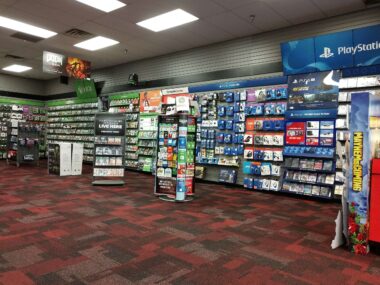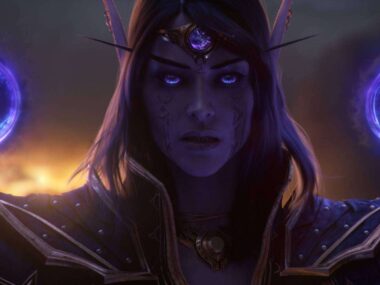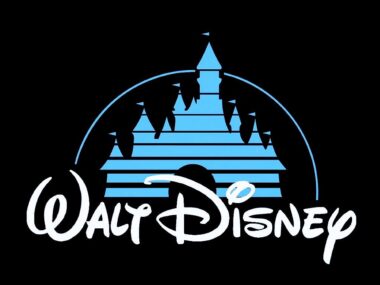What Happens to Games When They Die?
GamesIndustry.biz recently published an opinion piece by intellectual property lawyer Sergio Ferreira, arguing that the “Stop Killing Games” movement doesn’t fully understand the complexity of its demands. The piece does something more important: it accidentally proves why we need consumer protection in gaming. Right now, we don’t have any.
Ferreira’s piece raises legitimate points. Of course there are technical, legal, and logistical hurdles to keeping a game alive after shutdown. And no, consumers don’t own the software. They’re only buying a license. That’s true across the software industry.
If companies want to keep control, they can take responsibility too. What’s happening now is an unregulated mess where games disappear, purchases vanish, and players are left with nothing. That’s not preservation. It’s exploitation.
Reasonable Expectations, Not Perfection
No one’s asking for a magic wand that makes every game work forever. We’re asking for a plan. A path to playability when servers go dark. It doesn’t need to be perfect. It doesn’t even need to be the full experience. But it needs to be something.
For example, if a game licenses music or characters (like Marvel skins in Fortnite), sure, those can disappear when the license ends. But… let players know up front. If you’re going to lose access, say so before they spend money.
Let’s take World of Warcraft (WoW). It’s true that WoW is server-based and rewriting the game to work offline would be a major undertaking. Players are already soloing older content because they’ve out-leveled it. Blizzard recently added solo dungeon features with AI bots. Clearly the company has the tools. All they’d need to do is reroute it to the local machine. Sure, features like the Auction House and group finder would have to be removed. That’s okay. What’s left would still be valuable.
Gamers aren’t demanding to keep playing live MMOs offline in their full glory. They’re asking not to lose everything. That’s a fair ask. Especially when companies like Blizzard sell $90 mounts. They can afford to make a retirement plan for their games.
Legacy Games vs. Future Policy
Let’s be realistic: retrofitting every online game ever made isn’t possible. That’s not the argument. The argument is this: moving forward, the industry should build games with a kill switch. When support ends, players should be able to access an offline version. No updates. No support. Just basic, single-player access.
No, this doesn’t mean keeping two modes live at once. The offline version doesn’t have to exist until the game sunsets. It doesn’t need to include the shop or live-service elements. Just the core gameplay loop, preserved.
If that’s still too much for small indie developers, then fine-carve out an exception. Maybe the law only applies to games that gross over $10 million. But AAA studios? The ones with billion-dollar portfolios and server budgets that could fund a small country? They can handle it. They can have AI help them code it!
Community Projects Prove It Can Be Done
The “Single Player Project” for WoW proves it’s technically possible. It’s not perfect. AI bots fill in for players, some content is buggy, and it’s only available for older versions of the game. But it works. Players can run both server and client on their own machine. That alone undermines the idea that it’s impossible.
It’s not just WoW. Other Blizzard games like StarCraft II, Diablo II: Resurrected, and Warcraft III already support offline modes, sometimes with minor restrictions. The idea that it’s “too hard” only applies when it’s not profitable.
It’s Bigger Than Games
This is part of a broader trend where companies are quietly removing ownership from everything we buy. You don’t own your music. Do you own the software that runs your smart fridge? You can’t repair your tractor or fix your phone without permission. You’re renting your digital life, and the price keeps going up.
If nothing changes, the idea of owning anything, games included, will be gone. We’ll be left with subscriptions, shutdowns, and proprietary walls. Today it’s your favorite game. Tomorrow, it’s your car not starting because your subscription expired.
Right now, companies are being rewarded for designing products that self-destruct. And when they pull the plug, consumers lose. That’s why Stop Killing Games matters. That’s why this fight is important.
The Real Question
The real question isn’t whether games can be preserved. They can. The question is whether companies should be required to do it. Should they plan for the end of life like any other responsible business does?
Ferreira’s article focuses on what’s hard. But what’s harder is doing nothing and letting this continue unchecked.
What players are asking for is reasonable: give us a path to access what we paid for when your servers go offline. Don’t tell us it’s impossible when community projects are already doing it. Don’t tell us you care about preservation while you delete digital history.
And don’t confuse control with complexity. You can end a live service without killing the game.
If we don’t fight this now, we won’t just lose access to games. We’ll lose the right to own anything digital at all.






